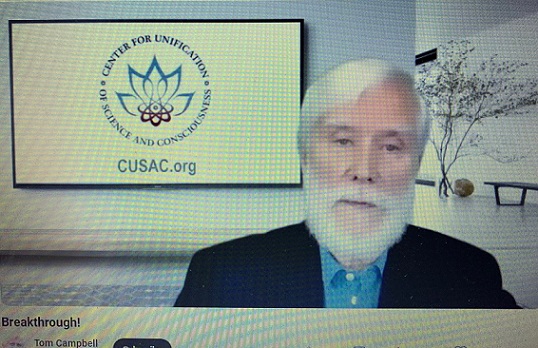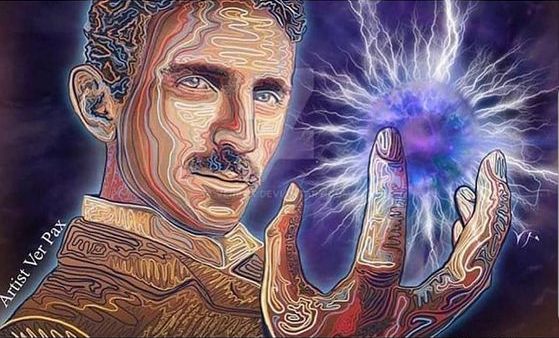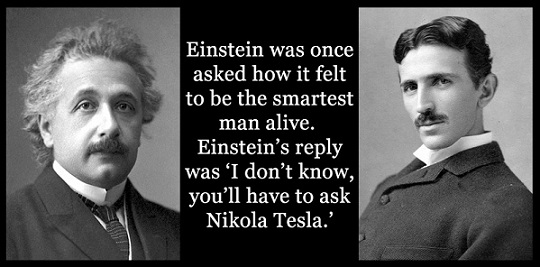|
Word Gems
exploring self-realization, sacred personhood, and full humanity
Editor's Essay:
Is Time Travel Possible?
|
Do you know what this means, Marty? - an alternate reality has been created
“Obviously, the time-continuum has been disrupted, creating this new temporal-event sequence resulting in this alternate reality.”
“English, Doc.”
“Here - here - here… [moving to the blackboard] … Let me illustrate… Imagine that this line represents time to the present, 1985 … [here’s] the future… [here’s] the past… Prior to this point in time, somewhere in the past, the timeline skewed into this tangent, creating an alternate 1985 - alternate to you, me, and Einstein, but reality for everyone else.”
READ MORE of Doc and Marty on the "500 tape-recorded messages from the other side" page.
|
so many time-travel movies
I’m a fan, and it’s all quite fascinating. Check out time-travel movies on the free-streaming tubi.com, and you’ll find many dozens to choose from.
A lot of them are low-grade, however, not that good, not much plot, not worth watching; but, there are the classics in this genre which are entertaining and well constructed: for example, Back To the Future, Somewhere In Time, Interstellar, Groundhog Day, Frequency, Arrival, The Love Letter, Terminator, Avengers: Endgame, and the grand-daddy, H.G. Wells’ Time Machine.

pilgrimage to the professor
Many of these movies are built around a mad scientist, or discredited physics professor, one who, it is claimed, has researched and knows about time-travel but has gone underground now to avoid scrutiny.
The movie's protagonist, more often than not, searches for said time-travel expert, interviews him and receives mottled encouragement that time-travel is, indeed, possible, but dangerous.

However, this warning does not dissuade the one who wishes to change the past in order to meet or retrieve his beloved, or to circumvent an occurrence of dire happening which separated them.
‘Einstein said time-travel is possible’
Frequently, too, in these stories, someone makes the claim, “Einstein said time-travel is possible.” This kind of name-dropping, of course, is meant to lend credence to the unapproachable.
Is this true? Did Einstein offer blessing here?
The answer is, yes and no, but not really – not the kind the movies usually talk about. Clarity here will take some discussion.
Here are some general rules that affect the flow of time; reprinted from the "Einstein" section of WG:
|
Factors affecting the flow of time:
Gravity or mass of an object slows the rate of time.
Altitude, distance from a massive object, speeds up the flow of time. In the movie "Interstellar," because the travelers were close to a black hole, an hour there was equal to seven years on Earth.
Motion, the faster you move through space, the slower you move through time.
Editor’s note: When I first started looking at this subject, I found it difficult to remember which factor increased or decreased the rate of time. But then I began to understand the process more, and now it’s not so confusing. Here’s how to look at it: Motion slows time because, think of the extreme case, if you were a photon traveling at the speed of light, there would be zero time for you, and so, we can think of any motion as just a step toward light-speed. Gravity, with its heavy hand, warps not only space but time, as well; as a result, time slows down. And altitude is just a variation on gravity; in that, the farther you are from a massive body, the less gravitational impact it will have on you, and therefore, altitude, or distance from a massive body, speeds up time.
|
Einstein’s famous ‘twin paradox’
It was a thought experiment. Consider two identical twins. One remains on Earth, the other travels in a near light-speed rocket to a far outer-space destination, or maybe the rocket could just do loops, that would work, too.
it is possible to affect the rate at which the future will arrive
But when the still-young traveler returns, she finds her twin to have aged by many years, even a lifetime.
But there’s no true paradox here. Newton thought that time is absolute, the same everywhere, but this is wrong. Time flows at different rates depending on motion and gravity. See the above insert. For the twin in the rocket, time slowed down.
Can the principles underlying the ‘twin paradox’ be used to build a time machine?
Yes, in a sense, it’s possible – see the movies Interstellar or The Time Capsule.
it is possible to affect the rate at which the future will arrive - but we can't go to the past
It would be travel in one direction only – the future; the rate of time-flow could be manipulated concerning the arrival of the future.
there is no time machine to go to the past
But you cannot build a time machine to go to the past. Concerning the twins, you cannot build a time machine, for example, to access one year, or one week, or one moment, before the rocket left for space.
'But, didn't Einstein say that time-travel to the past might be possible by going through a wormhole?'

This was his speculation. There was no evidence for the supposition, he was merely playing with ideas. The great mind also said,
Albert Einstein: "I think and think for months and years. Ninety-nine times, the conclusion is false. The hundredth time I am right."
|
From: https://www.discovermagazine.com/the-sciences/what-are-wormholes-and-could-they-be-the-answer-to-time-travel
What Are Wormholes, and Could They Be the Answer to Time Travel?
Wormholes, cosmic tunnels also known as Einstein-Rosen bridges, are a staple of science fiction. Could they allow real-world humans to travel back in time?
By Paul M. Sutter
The sci-fi landscape is littered with wormholes. From Douglas Adam's Hitchhiker's Guide to the Galaxy and Rick and Morty to the Marvel Cinematic Universe, these theoretical constructs allow characters to zip between distant points in the universe as easy as stepping through a doorway.
An Einstein-Rosen bridge is the simplest kind of wormhole. And while it can, in theory, allow you to meet a new friend from a distant part of the universe, there are some important reasons why it won’t let you travel back in time.
Black Holes, White Holes and Wormholes
Let’s start with everybody’s favorite astronomical mystery: a black hole. Despite their fearsome reputation, they’re actually rather simple creature. They have a point of infinite density, known as the singularity, in their centers. They are surrounded by a boundary called the event horizon.
The event horizon doesn’t exist in the same way that the surface of a planet exists. Instead it’s just a mathematical line in the sand that tells you one thing: if you cross within that special distance, you’re trapped forever, because you’ll have to travel faster than the speed of light to escape.
And that’s it. That’s a black hole. A singularity and an event horizon. All things that cross the event horizon will never escape back into the universe – things go in and never come out.
Mathematically we can also define the polar opposite of a black hole, which is conveniently called a white hole. White holes also have a singularity, but their event horizons act differently. Anything already on the outside of a white hole (like, the entire universe) can never, ever cross within it, no matter how hard it tries. And anything already inside the white hole will find itself ejected from it faster than the speed of light.
Now when we take a black hole and a white hole and connect their singularities together, we get an entirely new kind of object: an Einstein-Rosen bridge, better known as a wormhole.
What Is a Wormhole?
Wormholes are essentially hollow tubes through space and time that can connect very distant regions of the universe. A star may be thousands of light-years away, but a wormhole can connect that star to us with a tunnel only a few steps long.
Wormholes also have the somewhat mystical ability to allow backwards time travel. If you take one end of the wormhole and accelerate it to a speed close to that of light, it will experience time dilation — its internal “clock” will run slower than the rest of the universe.
That will cause the two ends of the wormhole to no longer be synchronized in time. Then you could walk in one end and end up in your own past. Voilà: time travel.
Can Humans Travel Through Wormholes?
There's just one, tiny, teensy problem with this setup: Einstein-Rosen bridges are indeed wormholes, but the entrance to the wormhole sits behind the black hole event horizon. And the number one rule of black hole event horizons is that once you cross them, you’re never allowed to escape. Ever.
Once you pass through a black hole event horizon, you are forced towards the singularity, where you are guaranteed to meet your gruesome end. In other words, once you enter an Einstein-Rosen bridge, you will never escape.
So, the unfortunate truth with Einstein-Rosen bridges is that while they appear to be magical doorways to distant reaches of the universe, they are just as deadly as black holes. When you enter you can meet other travelers who have fallen in from the other side, and you could even carry on a conversation…briefly, before you both struck the singularity.
There have been attempts to stabilize Einstein-Rosen bridges and make them traversable by somehow getting their entrances to sit outside the event horizon. So far the only way we know how to do this is with exotic matter. If you threaded the wormhole tunnel with matter that had negative mass, then in principle you could have a not-deadly-at-all wormhole.
Alas, negative matter does not appear to exist in the universe, and so our wormhole — and time travel — dreams will have to remain as mere mathematical fantasies.
|
other hypothetical fantasies
There are many of these in the marketplace, for which there is no evidence. For example, in Darwinism, it’s “magic oxygen” as cause for the “Cambrian Explosion.”
In quantum mechanics, to overcome the mathematical hurdle of “not enough time,” an infinite number of universes, even, parallel universes, are conjured. This unsubstantiated notion, supported by zero evidence, is put forward so often, in movies and popular culture, that the mere repetition gives it legs - an old propaganda technique, the "failed attorney's last resort tactic." See on the "clear-thinking" page.
And in the arena of time-travel we also sometimes hear of particles that might travel to the past. We find this idea associated with the “double slit experiment” – but, as we look at all the evidence, we find that there are political reasons concerning why certain ideas in science are accepted and lauded, while others are buried.
Particles travel in time?
In the debate concerning the meaning of quantum mechanics, it is often asserted that particles "go back in time." It's called retrocausality. But this is an unwarranted supposition, mere ad hoc invention to lend semblance of credence to tortured theory. See much discussion on the "quantum" page for the details, but, essentially, the debate centers about matter versus consciousness as the prime element of the universe.
|
Retrocausality, a fact?
billed as a form of time-travel but, in reality, it's mere editorial comment by materialists
Physicist Tom Campbell explains how retrocausality is an illusion.
'reality is just potential, until the measurement is made'
The particle hasn’t gone back in time. The previous state of the particle was not a material particle but merely a wave form, a potential particle. But, if one is a materialist, to make sense of this, then one will claim that the particle has gone back in time; worse, sometimes it will be said that the particle “knew” what it was doing, as if it had sentience. These things are believed by materialists to prop up a defective theory.
see the video
Read More
|
Particles do not travel to the past. This is not possible as the 'past' has no hard-edged ontology, does not exist. The 'arrow of time' moves in one direction only.
There’s a fundamental reason for this having to do with the essence and nature of the universe.
As we’ve often stated here, the “scientific evidence for the afterlife” changes everything. Its implications affect everything. But materialists refuse to acknowledge the evidence, even though 20 Nobel laureates in science have asserted that the evidence is valid.
Materialists tell us that humans are mere machines and that death is the end; that the universe has neither meaning nor theme; that matter, not consciousness, is the primary element of reality; that everything we see around us exists at the pleasure of randomness and chance; in other words, it’s all just an accident, a big misunderstanding.
According to them, we have no good future, no purpose, there is no Intelligent Design, no sacredness of human life, there is no coming love to be shared with dear ones lost.
Winston Churchill: "Only faith in a life after death, in a brighter world where dear ones will meet again -- only that... can give consolation."
To support the materialist dystopian, self-blinded view, they will suppress or skew any contrary evidence, and persecute those who dare disagree. We’ve outlined this problem many times in other writings.
And concerning time-travel, they will support a view suggesting that this kind of temporal peregrination is possible. Why do they want to believe this? that, the past might be changed? I think the answer will become clear.
Thousands of afterlife testimonies confirm that no one, not even over there, with their ultra-advanced science -- far, far ahead of what we have on the Earth -- no one there has traveled to the past. They do have ways of accessing images and records of the past but, concerning actually visiting the past as a bona fide, tangible place - no, it doesn't happen.
Here’s one testimony impinging somewhat upon this:

The following is channeled information via the mediumship of William W. Aber, the Psychic Research Society, as reported in “Beyond The Veil” (1902), compiled by J.H. Nixon. Testimonies were offered by numerous spirit-persons by means of full-form visible materialization. A visiting spirit speaks:
Can those on the other side see the future, prophesy with absolute assurance? This is not possible in a quantum universe built upon a structured uncertainty: “Friends, we are only human, and can only prophesy for mortals according to the tendencies we discern in their relative conditions. As spirits we are able to more clearly penetrate conditions and rationally trace causes to their ultimate effect than while in the mortal. We learn faster and can see farther, but we are nearly as liable to err as when in the mortal, except as increased facilities of learning and perception increase our ability to reach correct conclusions.”
They enjoy view from a higher mountain, can see tendencies in place, like predicting the weather, but are not infallible, and the farther out they try to predict, the more prone to error.
the dysfunctional ego wants more time; it wants to run from the consequences of its own actions rather than face what it’s made of itself and embrace authentic change
This is why there's a special fascination with time-travel movies. The ego loves it. Alternatively, we don't really like movies so much that lead us to facing our lives honestly. That's not as much fun.
This underlying “reason behind the reason” also impels the false doctrine of reincarnation. See many articles on that page discussing this evasion of personal responsibility. The errant reincarnation teaching is really a desire, effectively, to change the past, to bet on another roll of the dice. But we're not allowed to do this - just ask anyone in the Dark Realms.
But here’s the bedrock reason, the absolute undergirding, of why it's not possible to go to the past and change things.
The “prime directive” in Summerland has to do with honoring the sanctity of the human mind. Each one of us, "made in the image," is strictly responsible for what we’ve made, or will make, of ourselves. There's no running from it. And there's no savior god with magic wand to perfect us in a moment. This is fantasy.
This principle for each to “pay the last penny”, with no variation, is the unchanging way it is over there, and we have thousands of confirming reports. For example, see Father Benson.
All of this directly relates to time-travel, concerning what would happen if we could change the past.
Changes in the past would create a ripple-effect of new consequences, affecting the whole world. In fact, some of these altered ones, instead, for example, of dying young, or entering Summerland prematurely, would now find themselves on the Earth again, not having died, not having entered Summerland.
And this kind of chaos and confusion, of the sort that would subvert and intervene with the destinies of spirit-persons – effectively, jerking them out of their Summerland eternal lives to enter mortality once again – would never, ever be allowed to happen. "Upper management," the ruling class of the universe, would scoff at this puerile idea.
|
there is an impossibility so utter
My apologies to Emily Dickinson for altering one of her phrases.
In The Flash tv series, attempting to save his mother who'd been killed when he was a boy, Barry Allen creates an alternate timeline. But changing the past, with its ripple effects, produced many unintended consequences.
Interesting storyline - however, this is not just a fiction but a fantasy, not merely untrue but that which could never happen.

traceless
Prior to the temporal tampering, John and Lyla had known family happiness with a cherished daughter, Sara. But now, in the resultant new reality, Sara is wiped from existence, traceless, as if she’d never been born.
To extinguish, quench, or even to modify, the soul of a human being constitutes an utter impossibility. This could never occur. The soul is part of God's own essence and, therefore, in its architectonic made-in-the-image basis, can never be annihilated nor even refashioned.
irreducible sanctity
Emily Dickinson knew something of this irreducible sanctity. Along with many other mystics, she perceived that one’s cosmic consciousness cannot be eradicated. In her grief over losing the love of her life, she realized that there would be no solace from escaping herself: “the soul," she said, "[is] condemned to be … its own identity” – and this, for eternity. Editor's note: in other words - best to make friends with it, this travel companion is not going anywhere.
ultimate self-adequacy
Notice, too, how often Emily speaks of the soul as sufficient “unto itself.” This ultimate self-adequacy, inviolable and unassailable, remains and continues, despite all, for all time and beyond time.
There will be no altering, expunging, nor eluding, the soul; that is, no refuge from oneself. And this desired-for flight from one's own person is what the penchant for time-travel is really about.
In the writing "500 tape-recorded messages from the other side," I list nearly ten ways by which the many millions of dysfunctional ones over there seek to be rid of themselves. It's interesting to me that, with all of the super-resources enjoyed in the next world, there is not even a mention of altering the past, creating new timelines. This means that such option for evading "the spoiled self" does not exist.
See more on the "Dark Realms" page.
|
But, materialists want to believe that there's no order and necessity in the structure of the cosmos - which is why they’re materialists; however, they have their own "classroom" coming up.
As we've said, the “scientific evidence for the afterlife” changes everything for us – everything but the past. Like liabilities on the balance sheet of a newly acquired company, you can bet it's all pretty solid.
|
'the truth is not a fragile thing and will eventually rise to the top of a heap of competing ideas'

Physicist Tom Campbell, in clear language, explains the history and significance of the quantum mechanics revolution of 100 years ago, how its implications were denied by materialists, and why, as Tom sees it, its proper explication might lead to a better world, free from the power-control-force paradigm afflicting all of us today.
READ MORE
|
Restatement:
I watched a series of video presentations on the nature of time. The professor is a well-known science lecturer, very articulate and impressive. He offered the latest findings concerning particle physics along with historical background.
However, he is a materialist. He subscribes to the metaparadigm that matter is fundamental in the universe, not consciousness. And so I knew that he would skew the topic’s information, offer it selectively, as if competing ideas did not exist – and he did. Essentially, his discourse represented a one-sided propaganda piece in support of “the only reality is matter.”
Editor's note: This is very strange, for many reasons, but, not the least of which concerns what Tesla said, the smartest person alive, according to Einstein:
|
 |
|
|
“The day science begins to study non-physical phenomena [the primacy of consciousness], it will make more progress in one decade than in all the previous centuries.”
"Physics extends beyond what is scientifically known today. The future will show that what we now call 'occult' or 'the supernatural' is based on a science not yet developed, but whose first infant steps are being taken as we speak."
“If you want to understand the Universe, think of energy, frequency, and vibration.”
“My brain is only a receiver, [and] in the Universe there is a core [of] knowledge, strength, and inspiration. I have not penetrated the secrets of this core, but I know it exists.”
Nikola Tesla
|
|
 |
|
Often on Word Gems, I present evidence, dozens of articles, concerning this battle of disinformation. See the pages devoted to “evolution,” the “afterlife evidence,” and “quantum mechanics.” You will find numerous examples of how materialists censor, misrepresent, blacklist, and otherwise persecute scientists who promote consciousness as basis of reality.
citation bluffs
It’s so bad today that, as Dr. Rupert Sheldrake has pointed out, so many citations in science-journal articles are false, just plain lies. This brand of prevarication has its own name now, "citation bluffs."
The lesson for us concerning the topic at hand: When you read of “particles going back in time”, or “parallel universes,” or “retro-causality,” consider the source. Like most everything else we hear today, it’s likely to be fake news in support of a materialist agenda.
|
So, what is time really?
The aforementioned professor, after many lectures, never answered this question directly.
There was much discussion about the history of clocks and calendars – but this addresses only the computation of time, and is mere distraction to the larger question; and there was much talk about “time’s arrow”, how it moves forward not backward; and we also learned about recent experiments concerning particle physics.
Editor’s note: Materialists place undue emphasis on the study of particles. This is so because they believe in an “upward causation” model of reality. But this is not how the universe is put together.
But, in all of this survey, at the end, one notices that time itself, in its essence, remained undefined.
There’s reason for this lack of clarity. Strictly speaking, time is not part of the physical realm and, therefore, a materialist will never come to precise terms with it.
time and consciousness
Time is indissolubly linked to consciousness. One of the most insightful and profound science lectures I’ve ever heard was given by physicist Peter Russell.
I’ve written of this elsewhere, but allow me to offer brief highlights along with my strong encouragement for you to see his presentation for yourself:
space and time are related to the speed of light
Peter Russell: "I don't think c [the speed of light] is a speed at all. It's the constant ratio of manifestation of space and time. For every 186,000 miles of space that appears, one second of time appears."
Kant: "Space and time are the framework within which the mind is constrained to construct its experience of reality."
From another lecture, Peter further clarified:
When we observe the universe, then, in our perceptions, in a field of awareness -- which we call consciousness -- the mind "creates" space and time, but always in a fixed ratio. Space and time appear in consciousness. Space and time are like the scaffolding, the canvas, or undergirding of our experience, but space and time come out of the underlying spacetime continuum. The amount of space we experience is always in direct proportion to the amount of time we experience. We think of this as the speed of light, but, from light's point of view - it's not going anywhere - it doesn't have a speed. Our own minds, in a sense, "create" a perception of space and time according to a fixed ratio, and the speed of light, in effect, becomes the ratio of the manifestation of space and time in this world.
READ MORE
|
See Dr. Faggin's explanation concerning the future and why it can never be accurately predicted.
|
Editor's last word:
Poetically, however, and in its own real way, we actually can change the past -- by viewing it with new eyes. Each of us needs to "hold out for a better past" and not settle for less. See the "what we stay alive for" essay.
Also see the "inferential life" articles for much discussion on how nature goes out of its way to avoid authentic (as opposed to the merely apparent) paradoxes - this would include any possibility of the mind-puzzle, "what if I went to the past and were the cause of my grandfather's death?"
Conundrum such as this makes for great theatre, but very poor science and reality.
|
|







